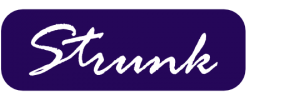Strunk, LLC Joins the Jack Henry Banking Vendor Integration Program
Strunk, LLC Joins the Jack Henry Banking Vendor Integration Program
– VIP enables Strunk, LLC to integrate with JHA Silverlake and 20/20-
Atlanta, Georgia September 22, 2021 – Strunk, LLC today announced that it has joined the Jack Henry Banking® Vendor Integration Program (VIP). Participation in the program will provide Strunk, LLC with access to Jack Henry Banking’s technical resources to enable ODP Manager to integrate with Silverlake System® and CIF 20/20® core processors. The Vendor Integration Program is designed to help ensure that Jack Henry Banking’s customers can easily deploy third-party products.
ODP Manager integrates with Silverlake and 20/20 via jXchange™, a services-based programming interface that enables third-party vendors and banks to access the platform’s core data and business rules. The integrity of data is maintained throughout any data exchange because access to business rules and data is managed through a service layer that governs these interactions.
The automation provided through jXchange will allow Strunk clients a much more seamless import process within ODP Manager. Files are automatically created and made available within the jXchange portal and the data will then be imported and updated via ODP Manager each business day. Clients will enjoy the same security import protocols as provided from a manual upload and import. Once the necessary data has been stored within ODP Manager, files on the jXchange platform will be deleted for added security.
“We have been working towards this goal to make the import process as simple as possible for our clients. We are thrilled to have the opportunity to provide this option to our clients on the Jack Henry platforms,” said Strunk CEO, Dan Roderick.
Jack Henry Banking’s VIP takes the customer out of the middle, providing vendors with direct access to Jack Henry Banking’s technical resources and test systems. VIP inclusion is not an endorsement of the vendor’s product.
About Jack Henry Banking
Jack Henry Banking®, a division of Jack Henry & Associates, Inc., is a leading provider of integrated computer systems for banks ranging from de novo to multi-billion dollar institutions. Jack Henry Banking currently serves more than 1,000 banks as a single source for integrated, enterprise-wide automation and as a single point of contact and support. Additional information is available at www.jackhenrybanking.com.
About Jack Henry & Associates, Inc.
Jack Henry (NASDAQ: JKHY) is a leading SaaS provider primarily for the financial services industry. We are a S&P 500 company that serves approximately 8,500 clients nationwide through three divisions: Jack Henry Banking® provides innovative solutions to community and regional banks; Symitar® provides industry-leading solutions to credit unions of all sizes; and ProfitStars® offers highly specialized solutions to financial institutions of every asset size, as well as diverse corporate entities outside of the financial services industry. With a heritage that has been dedicated to openness, partnership, and user centricity for more than 40 years, we are well-positioned as a driving market force in cloud-based digital solutions and payment processing services. We empower our clients and consumers with the human-centered, tech-forward, and insights-driven solutions that will get them where they want to go. Are you future ready? Additional information is available at www.jackhenry.com.
About Strunk, LLC
Founded in 1976, Strunk is the pioneer in helping financial institutions implement and manage overdraft privilege programs. Because risk management and compliance have always been our cornerstone, our focus has expanded to help clients improve their processes with comprehensive, easy-to-use and affordable Governance, Risk Management and Compliance software. Additional information can be found at www.strunkaccess.com.


